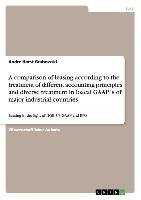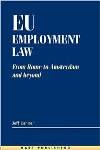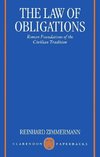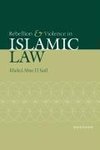
-
 Nemecký jazyk
Nemecký jazyk
A comparison of leasing according to the treatment of different accounting principles and diverse treatment in loacal GAAP´s of major industrial countries
Autor: Andre Horst Grabowski
Wissenschaftlicher Aufsatz aus dem Jahr 2011 im Fachbereich Jura - Zivilrecht / Handelsrecht, Gesellschaftsrecht, Kartellrecht, Wirtschaftsrecht, , Sprache: Deutsch, Abstract: Leasing is more and more understood as a modern form of financing of various assets,... Viac o knihe
Na objednávku
14.76 €
bežná cena: 16.40 €
O knihe
Wissenschaftlicher Aufsatz aus dem Jahr 2011 im Fachbereich Jura - Zivilrecht / Handelsrecht, Gesellschaftsrecht, Kartellrecht, Wirtschaftsrecht, , Sprache: Deutsch, Abstract: Leasing is more and more understood as a modern form of financing of various assets, both in the
commercial and the private sector. Leases have now become an integral part of economic life. With
their multiple creative possibilities and variations, leases are an equitable alternative to buying and
renting for companies.
The diversity of different forms of leasing, and the fact that there is no uniform lease contract as a
reference, results in lease accounting being one of the most difficult areas of accounting under almost
all jurisdictions. [1] This diversity leads to an accounting system for leasing business with different
possibilities to allocate positions in the P & L and balance sheet. Due to the lack of specific rules,
leasing accounting is mostly based on general accounting principles. [2] In Germany, relevant tax
decrees have impact on the local accounting. Leases are, in principle, not fixed on legal contract
types, and this allows temporary grant of use and utilization of liquidity-friendly financing alternatives
in the balance-sheet. Since most major accounting systems presuppose exclusion of pending
transactions from the balance sheet, [3] companies used contracts for grant of use, such as lease,
deliberately to influence the accounting. For example, sale and leaseback transactions are used to
reduce the balance-sheet debt, though the physical property mapping has not changed. [4]
The current lease accounting under IFRS 17 of the IASB is to be understood as a reaction to the
existing situation in the various accounting systems. The aim of the standard setter was to capture the
major part of the grant of use in the balance sheet. All postings, which change the asset allocation
similar to an investment, should also be accounted
- Vydavateľstvo: GRIN Verlag
- Rok vydania: 2011
- Formát: Paperback
- Rozmer: 210 x 148 mm
- Jazyk: Nemecký jazyk
- ISBN: 9783640854370

 Anglický jazyk
Anglický jazyk 









